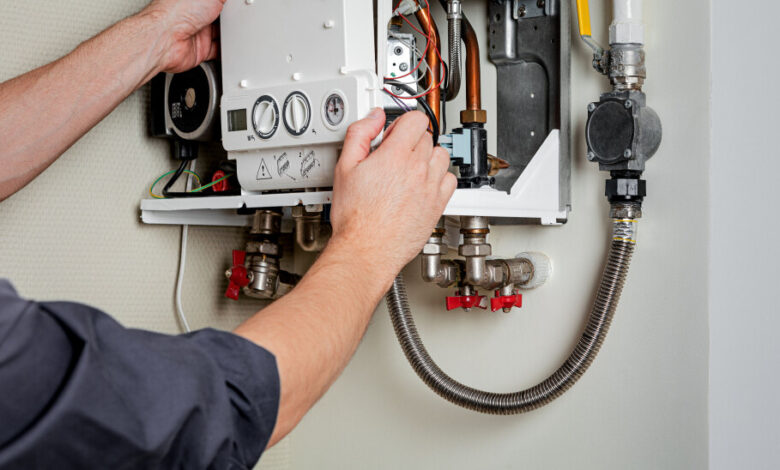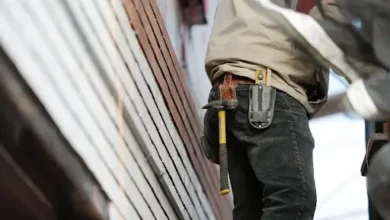Boiler Replacement Grants for Low-Income Households

Keeping a home warm during winter is essential. But old boilers can be expensive to run and repair. Many low-income families struggle to afford a new, energy-efficient boiler. Thankfully, Free Boiler Scheme grants can help.
These grants provide financial aid to eligible households, making it easier to upgrade to a modern heating system. This guide explains everything you need to know about boiler replacement grants for low-income households, including eligibility, application processes, and benefits.
Why Boiler Replacement is Important
Old boilers can waste a lot of energy. They use more fuel to produce the same amount of heat as a modern boiler. This leads to higher energy bills. A new boiler improves efficiency, lowers heating costs, and reduces carbon emissions. For low-income families, a grant-funded replacement means saving money while staying warm.
What are Boiler Replacement Grants?
Boiler replacement grants are government or privately funded programs. They help households replace outdated, inefficient boilers with new, energy-efficient models. These grants can cover all or part of the cost, depending on eligibility.
Governments and energy companies offer these grants to promote energy efficiency and reduce carbon footprints. Many countries have initiatives aimed at helping low-income families improve home heating.
Who is Eligible for a Boiler Replacement Grant?
Eligibility criteria depend on the program. However, most grants target households with limited income. Common qualifications include:
- Receiving government benefits like Universal Credit, Pension Credit, or Income Support
- Having a low household income
- Living in a home with an old, inefficient boiler
- Being a homeowner or having a private landlord’s consent
Some grants may have additional requirements based on location or heating needs. Checking with local authorities can provide specific details.
Types of Boiler Replacement Grants
Several programs offer financial aid for boiler replacement. Here are the most common ones:
Government Grants
Many governments offer grants under energy efficiency schemes. For example, in the UK, the Energy Company Obligation (ECO) Scheme helps low-income households replace inefficient boilers. In the US, the Low-Income Home Energy Assistance Program (LIHEAP) provides heating assistance, which may include boiler replacements.
Local Authority Grants
Some local councils provide additional grants for homeowners needing boiler replacements. These vary by region, so checking with the local council is important.
Energy Supplier Programs
Energy companies often run schemes to help customers with heating costs. Some provide free or subsidized boiler replacements for eligible households.
Charitable Grants
Several charities support low-income families with home improvements. Organizations like Turn2Us and National Energy Action (NEA) offer financial aid for boiler replacements.
Benefits of Getting a Boiler Replacement Grant
Replacing an old boiler with a new one has many advantages:
- Lower Energy Bills: Modern boilers are more efficient and use less fuel.
- Warmer Homes: New boilers provide better and more consistent heating.
- Reduced Carbon Footprint: Energy-efficient boilers help protect the environment.
- Fewer Repairs: New boilers need less maintenance and last longer.
- Increased Property Value: A modern heating system can make a home more attractive to buyers.
How to Apply for a Boiler Replacement Grant
Applying for a grant is straightforward. Here are the general steps:
- Check Eligibility Find out if you qualify by checking the grant’s criteria. Websites for government programs and energy suppliers have this information.
- Find a Grant Provider Look for available grants in your area. Contact energy companies, local councils, or charities that offer assistance.
- Complete the Application Fill out the application form. Some programs allow online applications, while others require paper forms.
- Provide Necessary Documents You may need to show proof of income, government benefits, or homeownership.
- Schedule an Inspection Some grants require a home inspection to check your current boiler and heating needs.
- Get the Boiler Installed If approved, the grant provider will arrange for the installation of the new boiler.
Common Challenges and How to Overcome Them
Some applicants face difficulties when applying for a grant. Here are some common issues and solutions:
- Not Meeting Eligibility Requirements – If you don’t qualify, check if other grants are available. Some charities or local councils may offer help.
- Long Processing Times – Applications can take weeks to process. Applying early can prevent delays.
- Limited Funding – Some grants run out of funds quickly. Staying informed about new funding rounds increases your chances of approval.
Alternative Support for Heating Costs
If you don’t qualify for a boiler replacement grant, other options may help:
- Winter Fuel Payment – A government program that provides financial aid to help with heating costs.
- Cold Weather Payment – Extra payments for households in freezing temperatures.
- Budgeting Loans – Interest-free loans for people on certain benefits, which can help cover heating costs.
- Energy Discounts – Some energy suppliers offer discounted rates for low-income families.
Conclusion
Boiler replacement grants can make a big difference for low-income households. They help reduce energy bills, improve home warmth, and support environmental sustainability.
If you need a new boiler but can’t afford one, checking your eligibility for a grant is a smart move.
With government programs, local authority schemes, and energy supplier offers, there are multiple ways to get assistance. Applying early and exploring alternative support can ensure you stay warm and comfortable during winter.





